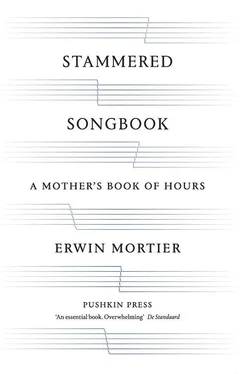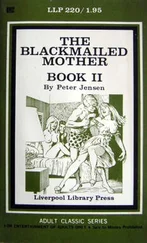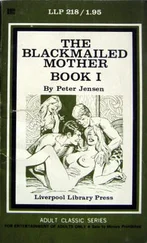When he drops by he leaves her sitting in the car, it would be too much fuss forcing her to get out.
How are things? I ask.
Pretty poor, he says. Very poor indeed.
When we say goodbye I see her figure behind the window glass of the car, the outline of her head, her thin shoulders.
I knock on the glass. She doesn’t look up, she doesn’t wave, she no longer smiles.
I have leaked out of her.

The district nurse calls in twice a day. In the morning she pulls my mother’s nightdress off, washes her and helps her on with her clothes.
She also replaces the bag hanging round my mother’s waist twice a day, cleans the hole in her abdomen and the rubber of the ring that keeps the bag in place.
Twice a day my mother is in a panic. When we lay her on the sofa, on her back, she grabs my forearms tightly with both hands and as we lower her there is fear in her eyes, as if we are pushing her underwater, indescribable and hardly bearable.
Keep hold of her, says the nurse, as she detaches the bag and my mother cries like a child. Are you OK? It’s a bit of a shock, the smell, I know…
But I’m not shocked by the smell. I’m shocked by the sight of my mother’s body: pale, emaciated. Not an ounce of fat left under her skin, her muscles sinewy and thin as threads or cables. And her sadness, her infinite sadness.
I might as well put her nappy on too, the nurse says casually. Then she can go straight to bed.
I wonder why that sentence echoes in my head for so long.
I stroke her cheek and her forehead. She calms down, and when it is all over she lies on the sofa and looks at me. Not a sweet look, but fear lying low, like our cats when there’s a storm and they crawl under the table and stare at us wide-eyed, as if it’s our fault.
And so that happens twice a day, again and again, because by evening the whole morning ritual is forgotten again.

We probe her like a piece of stone that has fallen from space. We take samples in search of life forms, death forms. We listen with stethoscopes to what is happening beneath her parchment surface.
She has the heart of an eighteen-year-old, say the doctors.
We push needles into the relief map of skin that her arms have become.
Her blood couldn’t be better, say the doctors. All the values are normal.
It’s only her muscular stiffness, say the doctors, that causes concern. But how do you get someone who’s no longer aware of anything to do stretching and limbering exercises? How do you give someone who’s in a constant state of panic a massage?
She must become calmer, say the doctors. Otherwise there will come a moment when she will be using more energy than she absorbs by eating and drinking.
Cardiovascular.
Intramuscular.
My mother crumbles into fragments of rock-hard Latin.
We are like a ground-control station that with all kinds of techniques is keeping a precarious satellite in orbit around the earth — but for how much longer?

Every morning at about ten, except for Mondays, he takes her in the car to the home where she can receive day care. He could also have her collected by a minibus, the dementia bus, which every day bumps its way along the country roads for miles around, carrying its load of superannuated schoolchildren, but he doesn’t want to, and I understand him. He takes her in the car. He only accompanies her as far as the entrance. He stops at the sluice gate that screens off the area where she is from the exit.
One of the old ladies, who is also in day care, recognizes her and pulls up a chair for her by the big window. And so that’s where she sits. The nurses have asked me if they can pop her in the bath on Tuesday.
That’s all right by me.
At home it’s impossible to get her into the shower any longer. It seems that hot water calms her down.
That she still responds when the nurse calls her name.

My godchild comes to visit. He goes into the garden with his younger brother in search of skulls and bones from the blackbirds and pigeons that cats have caught. Their father and I drink white wine, and talk about life, about loss, about the life urge that in unguarded moments translates into raw pleasure, singing hunger. He lost his father early.
It releases you from a life predicated on the future, which doesn’t exist yet anyway.
We drink in silence; there are always enough pearls of wisdom.
His sons come back in. My godson has found the skull of a wood pigeon and one of a rat and empty snail shells. He holds the fragile bones up to the light and looks in fascination at the curves in the gossamer-thin bone.
I can see the little globes where their brains were, he says.

He is all eyes, my father, in the square in front of the cathedral and the theatre.
I haven’t been in town for at least five years, he says.
While we were parking, the disabled card lying on the dashboard caught my eye. I turned it over and suddenly saw a photo of her, taken when she was still well.
Her broad smile, her bright-eyed look. And the pride in her make-up.
I turned the card over again quickly. Seeing her as she was before the illness struck is unbearable. The way she looks today is equally unbearable.
We hang motionless, impotent, between what we don’t want to remember and what we can’t bear to see.

In the restaurant he says: I’ve acted stronger than I am. And too often I’ve unburdened myself with An.
I say: no one expects you to be strong. No one expects you to be able to handle this.
It’s quite something, he says, leaving someone behind whom you’ve known for fifty years.
You’re not leaving her behind. No one expects you to be her nurse. You’re entrusting her care to others, so that you can be there for her better.
The waitress comes and refills our glasses. Father and son? she asks. I thought so. I do that regularly, go out for a meal with my son. Then for all I care the rest can be blown sky-high.
Precious moments, she says.
We smile.
I think: everything’s already been blown sky-high.

In the past, whenever I wanted to give her a kiss, a sheet of blotting paper always came between us.
Child of parents who were ashamed. Of themselves, of history, of what people thought. The affection which a granny would generally have expressed with all her limbs in cuddling her grandchildren was put by her mother into the cakes she baked for us on birthdays. Pleasure palaces of flaky pastry, whipped cream, biscuit and chocolate. Whenever we had flu her father would stand snivelling by our sickbeds, because each time anew he thought our last hour had struck. Thoroughly nice man, but never affectionate.
Читать дальше













